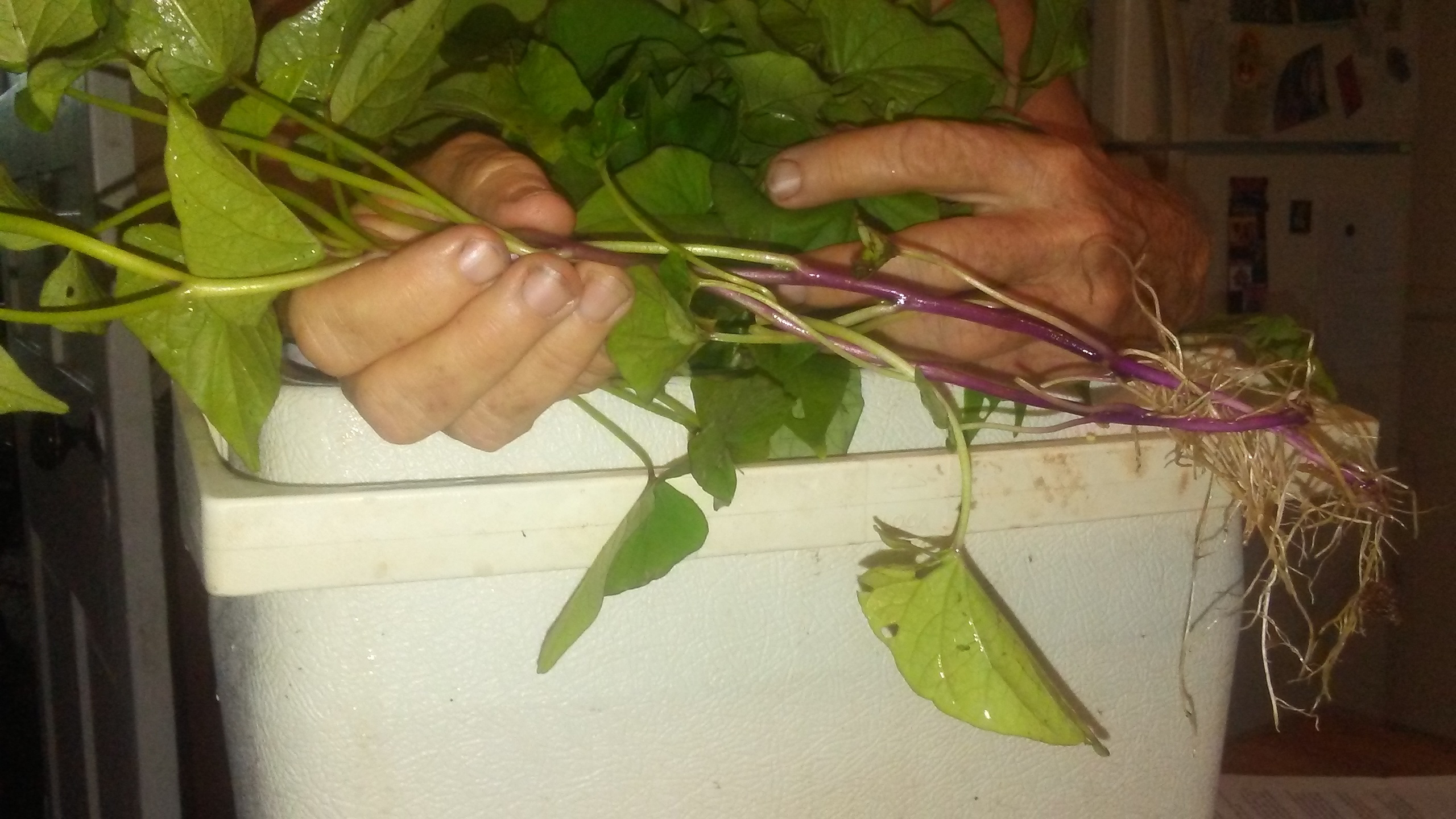
This year, we plan to engage people in planting and harvesting food from the garden at each of our events. On June 1, at our member potluck, we will plant sweet potatoes slips, bare-rooted plants grown from sprouting sweet potatoes in soil, sand or water.
I have prepared the beds. I tilled in the annual rye grass that I planted as cover crop a month ago. I will mound two 125-foot beds before Saturday night. I imagine that one person will create a rounded hole about six to eight inches deep with either a broom handle or a dibble, a hand tool designed for this purpose. Another person may place a sweet potato slip in the hole; a third person may firm the ground around the slip; a fourth person may water the plants. We will cover the rows with shade cloth and put weights on the edges of the clothes to keep them from blowing until the slips get established. Then we will eat great food, visit with each other and go home happy.
I have never mastered the art of growing slips. I have bought expensive slips from the local garden stores; I have mail ordered them only to have them arrive wilted and nearly lifeless after they shipped in heat. A few years ago, I found Mr. Miller. He lives 6 miles from me and grows thousands of red and white heirloom sweet potato slips and acres of his own potatoes. I usually buy two or three hundred slips from him at wholesale prices.
Last year, we visited for more than an hour. He showed me his extensive wood shop and how he grows the slips in frames. We shared stories and insights about gardening, woodworking and health. He was concerned abut whether he would be able to take care of his wife, whose health was declining.
I was not sure what to expect when I called him this morning to ask if he had slips for sale. He sighed and sounded almost defeated. Last year was a bad year for sweet potatoes, he responded. The vines grew prolifically, but they did not develop the tubers. “Too wet, “ he says simply. He agreed to sell me a hundred or a hundred and twenty five slips—only reds, not whites--less than half of what I usually get, but all he can spare. I ask about his wife. She's about the same, he says. Then he describes how he can only see out of one eye and will need extensive treatment to regain his sight.
We agree I will come after lunch. His wife greets me with a warm smile, invites me in and accepts the lettuce, turnips and kale I brought from my garden. She calls his cell phone; no answer. We wait. Soon he arrives on his ATV. His belt is cinched tight around a small waist, his shirt hangs loosely off shoulders he is holding high and tight. His beard and hair seem a bit unkempt. He has clearly lost at least ten or twenty pounds. “It's pretty hard when they tell you can't eat half of what you used to because of diabetes and the other half because of kidney stones, “ he comments. He still moves well. Soon he hands me the bucket of premium sweet potatoes slips he has just pulled for me.
As I write a check for twenty dollars, I ask about the white sweet potatoes. Did any remain? Not many, he replies. He doesn't know whether he has enough white sweet potatoes to continue the line that has been in his family for 200 years. A bouquet of sweet potato slips was the last present his grandmother gave him. “Now don't lose my seed,” she admonished. He thinks of her as he begins this season. “Some people say I am crazy, but I am a Miller, and Millers don't give up,” he says resolutely. No one in his family is interested in continuing the line, and he still plans to plant potatoes this year.
I am anguished at how few understand or care about Mr. Miller's struggle to continue; I marvel that he still carries the seed his grandmother gave him in his heart. Such heart is priceless. It is the seed of the future that we now are called to cultivate in ourselves. We will start planting on Saturday night.....

